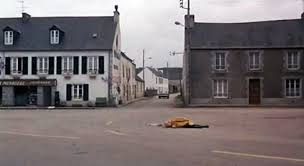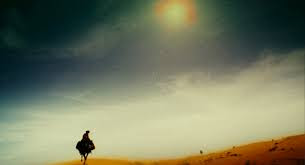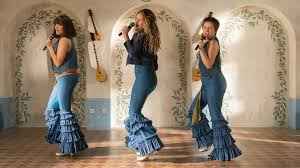 |
| Chow Yun Fat lets it burn in A Better Tomorrow |
The plot is a retread of various Warners gangster films: two brother, one a gangster, one a cop. Woo is a fairly loose director of actors, he is more of a visual designer and choreographer. Thus, results are variable. As the gangster, Lung Ti is only adequate. The doomed and forever golden Leslie Cheung is an erratic actor at this point, but he has presence galore. Best of all is Chow Yun-Fat in the Dean Martin role. Before launching a fruitful partnership with Woo on this film, Mr. Yun-fat had toiled in obscurity for ten years before this became a worldwide hit. Woo is especially weak with women and narrative, a minor action director despite my youthful enthusiasm. However, A Better Tomorrow rewards viewing and reviewing.































